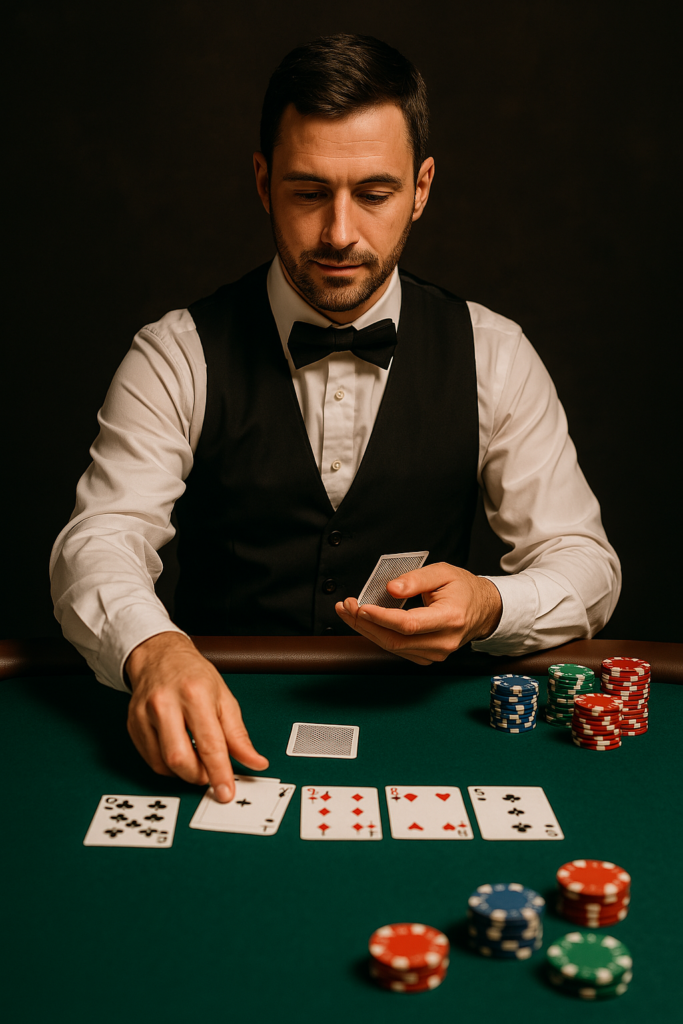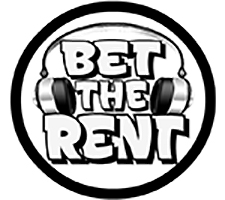
Tipping is more than a courtesy. It’s a small gesture that goes a long way—especially in poker. A good dealer can make or break the flow of a game, and tipping helps reward the ones who run clean, fast, and professional tables. But still, some players don’t tip. Others aren’t sure when or how much. If you’re unsure, or just need a little convincing, let’s break it down.
Why Tipping Poker Dealers Matters
Dealers don’t just toss cards—they set the tone. The best ones keep the action moving, keep mistakes to a minimum, and help maintain the rhythm of the game. They count chips accurately, manage pots, and stay sharp under pressure.
And here’s the truth: most poker dealers don’t make a livable wage from hourly pay alone. Tipping is what keeps them going. The poker room doesn’t function without dealers. So if you enjoy clean, well-run games, tipping should be part of your routine.
The Difference a Good Dealer Makes
We’ve all seen the contrast. A good dealer keeps things flowing—you focus on strategy, reading opponents, and stacking chips. A bad one? You’re double-checking pots, watching for misdeals, and getting pulled out of your zone.
A solid dealer improves your experience. That deserves recognition. If two players at the table just dragged big pots and stiff the dealer, it affects everyone. The dealer might not check out entirely, but the energy shifts. Slower hands, more mistakes, more drama. Not good.
When and How Much Should You Tip?
You don’t need to tip on every small hand. Raised and took the blinds? No tip needed. You won a monster pot worth hundreds of big blinds? That’s the moment to show some appreciation.
Think in big blinds, not dollars. A $1,000 pot at $1/$3 is massive—it’s over 300bb. That same pot at $5/$10 is big, but more standard. Adjust your tip accordingly.
What Happens When You Don’t Tip
Some players say, “It’s not my job to subsidize wages.” And technically, they’re right. But in reality? Dealers are human. They’re conditioned to expect tips on big pots. When it doesn’t happen, their focus can slip. Maybe not intentionally—but it happens.
Let’s say two players stiff the dealer after huge hands. Now it’s your turn. You look down at pocket aces. The dealer miscounts the pot. The floor gets called. You lose out because of a mistake that might’ve been avoided if the dealer were still fully dialed in.
Poker is hard enough. Don’t make it harder by playing in a game with frustrated, disengaged dealers.
The Dealer Will Remember You
This isn’t about bribery—it’s just reality. Good tippers get better service. Need a food order fixed? Want a ruling to go your way on a grey area? Dealers and staff remember who shows love and who doesn’t.
Tip well and consistently, and you’ll often find dealers going the extra mile. Stiff every time, and when you need change or clarification, you might be waiting longer than you’d like.
Good Karma at the Poker Table
Poker is a game of percentages, but sometimes you just want the vibes on your side. Throw the dealer a buck and maybe—just maybe—they’re not rooting for your opponent’s flush draw to come in.
It’s not science. It’s just good juju.
Final Thoughts: Tip for Better Games
Tipping isn’t about generosity. It’s about value. A tip is a small price to pay for more hands, better service, and a more enjoyable experience. Poker is a people game, and good dealers are part of that ecosystem. Support them.
If you’re a regular in one room, tipping should be automatic. You’ll get faster games, friendlier staff, and a better overall vibe.
More hands = more EV. Don’t forget that.
And who knows—tip right, and maybe the river won’t be such a heartbreaker.
Agree? Disagree? Got a dealer story that proves this point? Drop it in the comments.

Leave a Reply